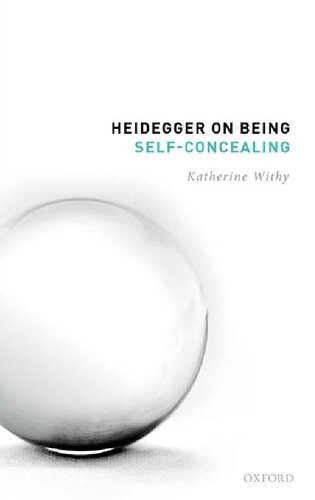

Most ebook files are in PDF format, so you can easily read them using various software such as Foxit Reader or directly on the Google Chrome browser.
Some ebook files are released by publishers in other formats such as .awz, .mobi, .epub, .fb2, etc. You may need to install specific software to read these formats on mobile/PC, such as Calibre.
Please read the tutorial at this link: https://ebookbell.com/faq
We offer FREE conversion to the popular formats you request; however, this may take some time. Therefore, right after payment, please email us, and we will try to provide the service as quickly as possible.
For some exceptional file formats or broken links (if any), please refrain from opening any disputes. Instead, email us first, and we will try to assist within a maximum of 6 hours.
EbookBell Team

0.0
0 reviewsWhat is Heidegger talking about when he says that being conceals itself? This is the first study to systematically address that question. Katherine Withy analyses texts from across Heidegger's philosophical career and sorts the various phenomena of concealing and concealment that Heidegger discusses into a highly-structured taxonomy. The taxonomy clarifies the relationships and differences between such phenomena as lēthē (forgottenness), the nothing, earth, excess, the backgrounding of the world, and un-truth, as well as speaking falsely, talking idly, secrets, mysteries, seeming, and inauthentic discovering. But in relating and differentiating these phenomena, the taxonomy shows that none of them is the self-concealing of being.
Having established what the self-concealing of being is not, Withy establishes what it is. She argues that being conceals itself in that it shows up to us as lacking the sorts of contrast cases that render entities determinate and intelligible. This novel and powerful interpretation of the self-concealing of being explains why the secondary literature to date has discussed it in vague and metaphorical terms, as well as why Heidegger tends to collapse being's self-concealing into the concealment of lēthē. Withy's interpretation is both a clarification of and a corrective to Heidegger's notoriously difficult and sometimes misleading discussions of being as self-concealing.